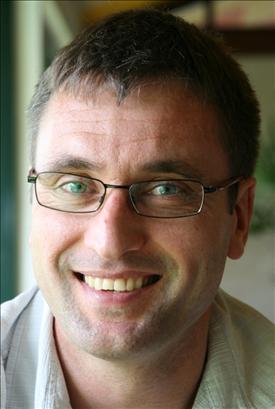 Rahemma’s house burnt to the ground just days before the flooding began last month, sparked by an accidental cooking fire.
Rahemma’s house burnt to the ground just days before the flooding began last month, sparked by an accidental cooking fire.
When the waters started rising, her husband, 67-year-old father-in-law, four children and three other relatives had no option but to flee to the only dry ground remaining; two classrooms at a school already occupied by 15 other families.
The rooms are linked by a dangerous stretch of wooden planks bridging a stagnant, mosquito infested pond, left behind by the receding floodwaters.
Rahemma is pregnant for the ninth time at just 35 years of age. She has already lost four children at birth, and of the four remaining, one has a severe mental disability.
In one sense, the timing of this pregnancy could not have been worse. She has lost all her possessions and food is scarce; the family relies on the generosity of poor families living adjacent to the school.
To make matters worse, her father-in-law Sohrab told us that the authorities had asked them to vacate the premises within three days.
They have no idea where they will go or how they will survive.
Sohrab’s job as a cotton picker, earning him a pathetic Pakistani Rupees 90 a day ($US 1), no longer exists as the cotton fields have been washed away.
However, in another sense, the timing could not have been better.
Medical treatment
Suffering from abdominal pain, Sohrab brought Rahemma to a newly established medical centre run by World Vision’s partner Muslim Aid. World Vision’s Dr Rasheed Ahmed was on site that particular day and agreed to see her.
“Rahemma is not unlike many women in rural Pakistan. She suffers oedema; most likely caused by a lack of protein in her diet. She is poorly nourished in general and routinely sick from un-hygienic living conditions,” Dr Ahmed said.
Her overworked and undernourished immune system simply could not get on top of these ailments and other niggling problems like persistent skin disease.
Rahemma would normally go untreated, either because she is unable to afford the necessary care, or because she is beyond the reach of Pakistan’s scant public health system.
We passed the remnants of many former rural health clinics on our way to the Muslim Aid facility, long since closed for want of staff and funds.
We explored one, finding an x-ray machine, dental chair, blood pressure cuffs and a dispensary.
Displaced and desperate families had moved into the building but ironically, despite the fact they were surrounded by an assortment of medical equipment.
But there was no one there able to make use of them, or offer them any help.
Clinic reopened
World Vision and Muslim Aid have now seized this opportunity and will reopen the clinic in the days ahead.
This sort of lack of basic health-care has undoubtedly contributed to Rahemma’s past pregnancies failing as often as they have succeeded.
This time, with the help of World Vision and Muslim Aid, she stands a better chance.
Ian McInnes is World Vision’s Humanitarian and Emergency Affairs Manager based in Auckland. He sent the above report from Sind
Province of Pakistan, where he is leading a team of relief workers.
To make a donation to World Vision, call 0800-605000 and to sponsor a child in one of World Vision’s ADPs, call 0800-800776.
www.worldvision.org.nz






